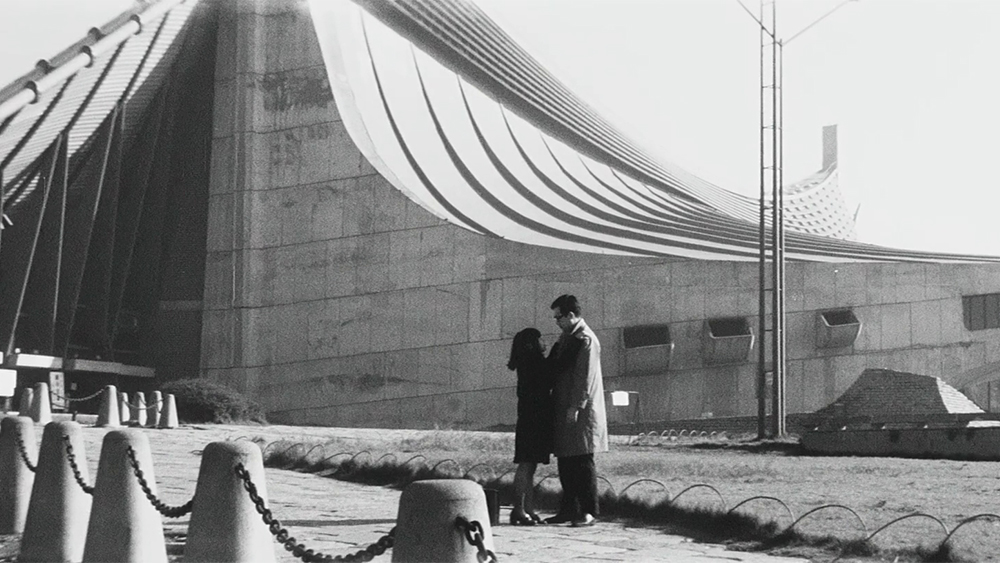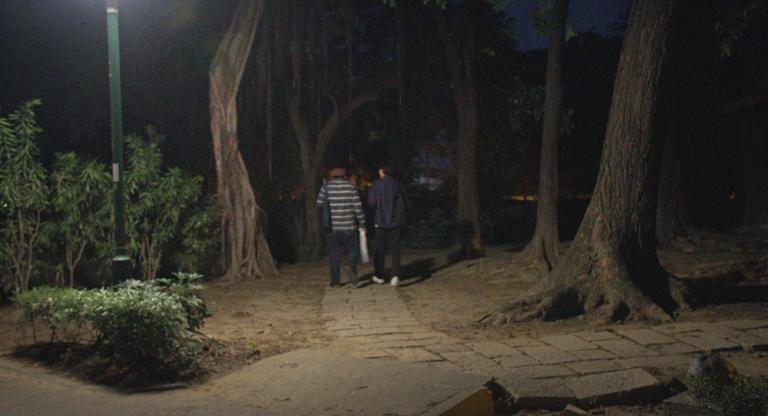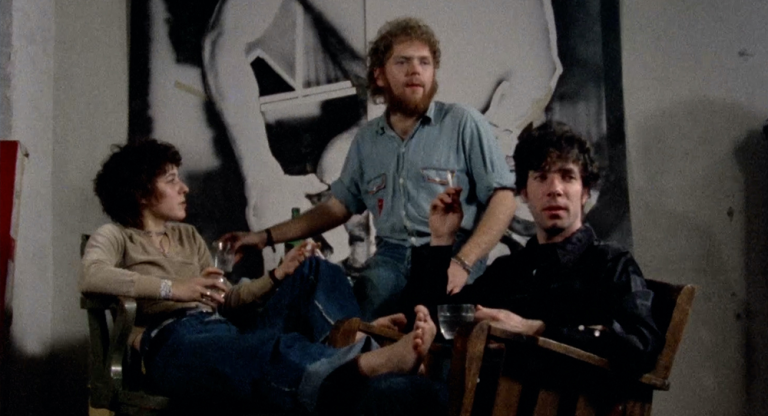In the summer of 1949, several months after joining the youth wing of the national communist party, the 17-year-old poet Nagasawa Nobuko took her own life with poison. Two decades later, Nagasawa’s poetry inspired one of the final pink films by Masao Adachi before he left Japan to join the Palestinian liberation struggle. Released in 1971, Gushing Prayer followed a decade bookended by the two great failures of the Japanese New Left: the inability to block the revision of the US-Japan Security Treaty in 1960 and its renewal in 1970. Set in the suspended world of adolescence and punctuated by the suicide notes of young women, Adachi’s film inhabits the empty space left by those defeats.
Like other pink films directed and scripted by Adachi in the 1960s, Gushing Prayer—released in Japan with the subtitle A 15-Year-Old-Prostitute—probes the impasses of the New Left through scenes of unsatisfying or violent sex. Yet this later work stands apart from earlier films such as Closed Vagina (1963) and Sex Play (1969) in its delicate, melancholy tone and sensitivity to the non-allegorical presence of its central figure. Yasuko (Aki Sasaki) is introduced amidst a tangle of nude bodies: lying impassively on the floor, caressed by two boys without reacting to their touch and observed by a second girl who asks about her bodily response. Dead set against the discredited world of adults, this group of teenagers has embarked on an obscure mission to “beat sex” through the ideologically correct use of the body—an initiative that the pregnant Yasuko has allegedly imperiled shortly before the film’s start by sleeping with an adult. Both repelled and fascinated by Yasuko’s confession and otherwise total anhedonic state, the group sets out into the streets of Tokyo to reproduce her fleeting experience of satisfaction. Developing as a series of inchoate inquiries into the sociopolitical significance of sex, Gushing Prayer frames Yasuko’s journey as if tenuously hovering over a void of non-meaning. Alienated from the institutions of adult society, her ostensible friends can nonetheless offer her no alternative beyond the prescribed roles of mother and sex object.
Midway through the film, the adolescents come across a military parade spectated by families waving national flags. Over the endless procession of tanks rolling down the city street, Adachi imposes text: “Everything is over now. Nothing is left but progress.” In this world of blocked desire, what remains is the blunt reality of the body—a splash of red against black-and-white and the sound of leaking gas slowly filling the room.
Gushing Prayer screens this evening, February 3, and on February 8, at Anthology Film Archives as part of the series “Wandering Women.”



